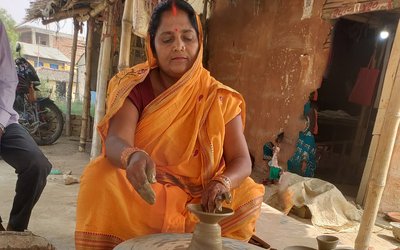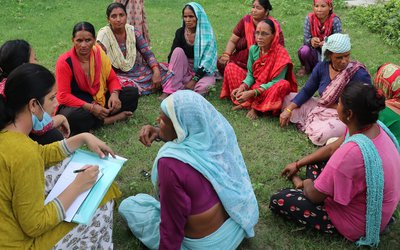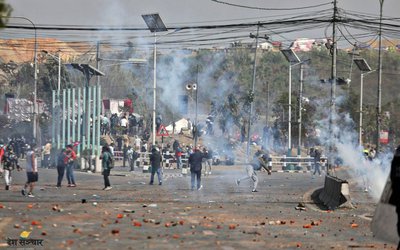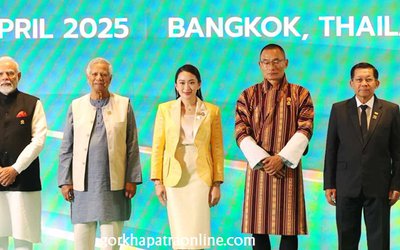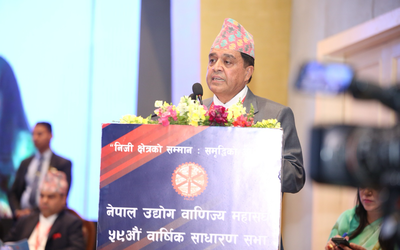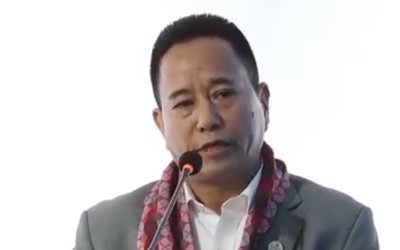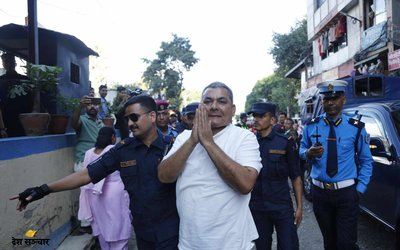The purpose of this morning’s event is to launch the Nepali translation of the International Protocol on the Documentation and Investigation of Sexual Violence.
The UK’s Preventing Sexual Violence in Conflict Initiative (PSVI), led by the former Foreign Secretary, William Hague, and the UN High Commissioner for Refugees’ Special Envoy Angelina Jolie, was launched in May 2012.
Since then, the campaign has achieved global reach: from galvanising the G8 Foreign Ministers to adopt a historic Declaration on Preventing Sexual Violence in Conflict, to the drafting of the subsequent Declaration of Commitment to End Sexual Violence in Conflict - endorsed by 155 countries, including Nepal.
In June, the UK hosted the Global Summit to End Sexual Violence in Conflict. We invited multilateral institutions, including the United Nations, African Union and European Union, faith leaders, as well as hundreds of civil society organisations. Unusually for a major international summit we also opened the doors to the general public, allowing thousands of people to join us and take part in 175 events in the Summit Fringe.
The Summit – which was attended by the Foreign Minister of Nepal, Mahendra Pandey - was also where we launched the International Protocol on the Documentation and Investigation of Sexual Violence – a set of standards on the documentation of sexual violence as a crime under international law, drafted by over 200 experts from around the world.
Let us pause here, on the day after International Women’s Day, to reflect on the following: sexual violence affects hundreds of thousands of women and girls, men and boys, all over the world. In addition to the extreme physical and psychological trauma suffered by survivors, sexual violence engenders and aggravates ethnic and sectarian divisions in communities. It engrains conflict and instability, and undermines peace-building and stabilisation efforts in dozens of countries trying to recover from the horrors of war.
And yet, the overwhelming majority of survivors never receive justice, and face considerable challenges in accessing the medical, psychosocial and economic support that is necessary to help them rebuild their lives. The lack of accountability of those who commit crimes of sexual violence in conflict exacerbates a widespread culture of impunity, and many survivors are left isolated, ashamed, and lacking the justice they deserve.
The PSVI campaign was driven by the UK’s firm conviction that we must all do more to tackle wartime rape, support survivors, and strengthen the national and international structures, systems and services in place to assist all those affected by this egregious crime.
The International Protocol is an important tool to help national and international justice and human rights practitioners to effectively and protectively document sexual violence, support survivors, and pursue accountability for these crimes. Responding to sexual violence requires a strong multi-disciplinary approach involving the coordinated provision of health services, protection, psychosocial support, and access to justice for survivors. Putting these support services in place contributes to the likelihood that survivors report crimes of sexual violence. Additionally, the manner in which the information is accessed and collected, and the methodology employed in the documentation process, is key to ensuring the integrity of the evidence, the protection of the beneficiary community, and the empowerment of survivors through participation in the justice process.
The Protocol sets out simply and clearly the basic principles to follow with these aims in mind. It is hoped that all practitioners will find certain elements of the guidance included in the Protocol useful in their work, in recognition of the need to improve coordination and consistency of approach when working to treat, support and represent the rights of survivors and witnesses of sexual violence, whether in the context of national or international justice, accountability mechanisms or advocacy.
This document is a summary of the full protocol – a translation of the full protocol will shortly be available online. It is my hope that it will be a practical tool to help all practitioners in Nepal, be they from the police, army, legal community, medical community or civil society. I hope that it will used by practitioners working on documenting sexual violence cases from the past, including from the conflict period in Nepal. I hope that it will help practitioners involved in the documentation and investigation of sexual violence cases occurring today. And I hope it will be useful to practitioners involved in the prevention of sexual violence in conflict overseas, in particular those Nepalis from the army and police involved in the vital and important work of peacekeeping and peace building operations around the world.
The UK and Nepal are partners in the global effort to end the use of sexual violence as a weapon of war. It is thus with great pleasure that I launch today the Nepali translation of this Protocol. Let us continue to work together as partners to end the use of sexual violence as a weapon of war.



